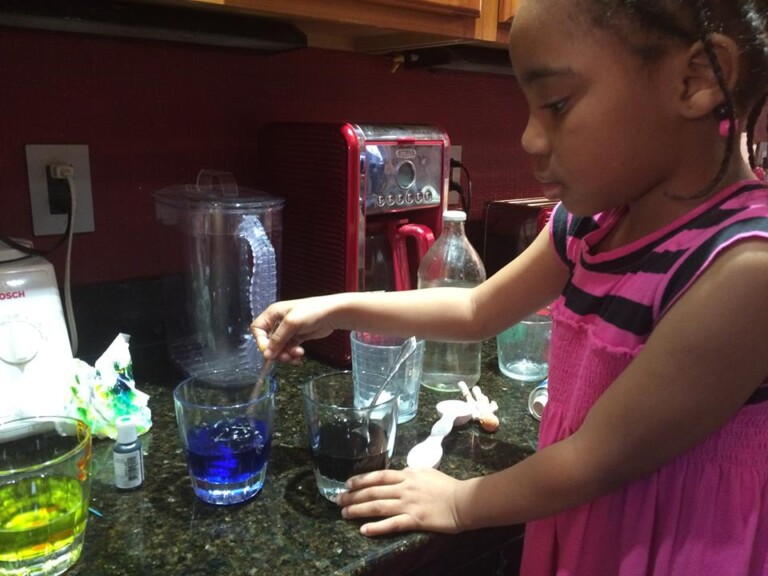The Problem with Inferiority

Inferiority is real.
Many of us struggle with inferiority. Sometimes it is because of things ingrained into us from little up. Often it’s because of things others say or do to us. Many times, it’s because of what we do.
As kids, we had no control over the things people said to us that made us feel inferior. It’s true that we have no control over what others say or do to us that gives us cause for feeling inferior.
While we might not have control over situations, we do have a choice in what we choose to believe about the lies in our childhood or the opinions of peers today. We also have a choice in feeling inferior to others. Nobody can make us feel inferior but us. That’s because we are the ones who listen to the lies.

Who sets the standard by which we decide whether or not we are inferior? Is there a litmus test we can take to help us discover our “rank”? A litmus test is someone’s decision or opinion about something that tells us what they think about a wider range of related things. Who is the “someone” who decides the standard for the litmus test?
We get stuck in the comparing game.Inferiority is being worse or inferior to other people or things. It can mean being lower in status or quality. Yet the question remains: by whose standard?
The Problem with Inferiority

Therein lies the problem. We listen to the lies of others and compare ourselves to others. You know what happens then? In an effort to feel good about ourselves in spite of our mental climate, we become negative about others.
Somebody is successful in business. We compare and find things to criticize about them so we don’t feel badly about how our business is doing. Somebody receives an award, a recognition, or an achievement. Instead of congratulating that person, we make snide remarks or digs about the award or something else related to that person- so that person won’t let it go to his head (because it’s our responsibility to see that this doesn’t happen.) Somebody enjoys a good relationship with a friend, a spouse, or a child. Instead of sharing their joy, we find ways to negate their blessing – because we allow their success to make us feel inferior and there’s no way we’re going to applaud something we wish we had.
The single gal finally meets Mr. Right – and we find fault with his looks or his job or his family – because why should she be happy when we’re not? A friend receives a promotion and we minimize its significance because we’d like to receive accolades, too. Another mom has kids who always behave and are never disrespectful. Instead of considering that we don’t see all sides of her family, we find ways to critique her parenting or her housekeeping, thinking it will make us feel less inferior. It doesn’t work that way. The more we compare, the more we focus on our own feelings of inferiority.
The Root of Inferiority

The root problem is comparison. We feel inferior because we compare. When we compare, we become jealous. When we are jealous, we’re not going to encourage or commend someone. Tell me it ain’t so!
We hole away in our corner of the world, lobbing subtle grenades from a distance because we’re hurting. Instead of going to the Word to see what God says, we keep comparing and putting others down instead of finding ways to encourage and bless.
The Antidote for Inferiority
God does have something to say about inferiority.
- Psalms 139 tells us that He planned us in our mother’s womb before we were born. He has a record of every part of our being: the number of hair on on head, the color of our eyes, our bust and hip size, and the point of our nose. He declares that we are fearfully and wonderfully made! Who are we to argue with that?
- Romans 8 tells us that no matter what has been said to us or what has happened to us, He can take those things and grow them into something good because He loves us. If God is for us, then why do we need to feel inferior to, or be afraid, of others? Check out verses 27-32 in this passage.
- I Corinthians 2 tell us that God has great things planned for those who love Him. It’s part of His wisdom. Are we digging for His wisdom?
- II Corinthians 10 tells us that we are not to compare ourselves with others. We are not to measure our successes or appearance with others. To do this is unwise. You want to be wise? Stop comparing.
Comparison breeds inferiority. Inferiority breeds resentfulness, which breeds negativity. Negativity breeds a critical spirit. Nobody likes to be around negative and critical people. Truthfully, it wears us out.
The next time you find yourself feeling critical, stop and ask yourself what the real problem is. Are you feeling jealous? Are you comparing? Are you resentful? It is okay to ask God God why He has blessed someone instead of you. What is not okay is resenting His blessing on others – because, after all, you deserve more of His blessings than anyone else (tongue in cheek here). What is not okay is to resent someone else for the way God has chosen to bless them or to withhold chastisement.
Finding Healing with Inferiority
The problem with inferiority is its effect on us.. It poisons us, making us emotionally unwell. Get to the root and recognize its source. Tear it out and keep pulling at those weeds that threaten to consume you. Begin blessing others by your actions and your words. Your heart will begin to heal, and you will find wholeness again.







